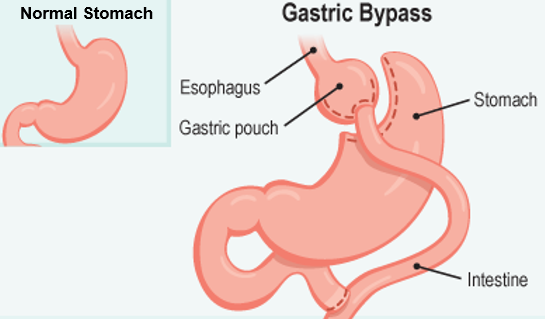Gastric bypass is a surgical procedure that helps weight loss. It decreases the size of the stomach and changes the way the stomach and small intestine absorb food, making it easier to lose weight.
Most gastric bypass surgery is laparoscopic, which means the surgeon makes small cuts. That makes for shorter recovery time. Most people get back to normal activities in 3 to 5 weeks.
Gastric bypass surgery is performed under general anaesthetic and will probably involve a hospital stay of 3 to 5 days. In this surgery, a surgeon creates a small pouch at the top of the stomach. This pouch becomes the new stomach. Surgeons then connect the pouch to the middle part of the small intestine, bypassing the upper part of the small intestine.
After the surgery, the stomach pouch holds a lot less food than a normal-sized stomach. A person will eat less, feel full sooner, and be less hungry. And fewer calories and nutrients are absorbed because the small intestine is shorter.
Post-surgery weight loss is often dramatic. On average, patients lose 60% of their extra weight. For example, a 350-pound person who is 200 pounds overweight would drop about 120 pounds.
Many weight-related health problems improve or even disappear after gastric bypass surgery. The most common are diabetes, high blood pressure, asthma, and obstructive sleep apnea.
Vitamin supplement recommendations are as follows:
- Multivitamin with iron twice daily
- Vitamin D3
- Calcium Citrate
- B12, 1000 mcg injection once monthly, or 2,500 mcg sublingual daily


